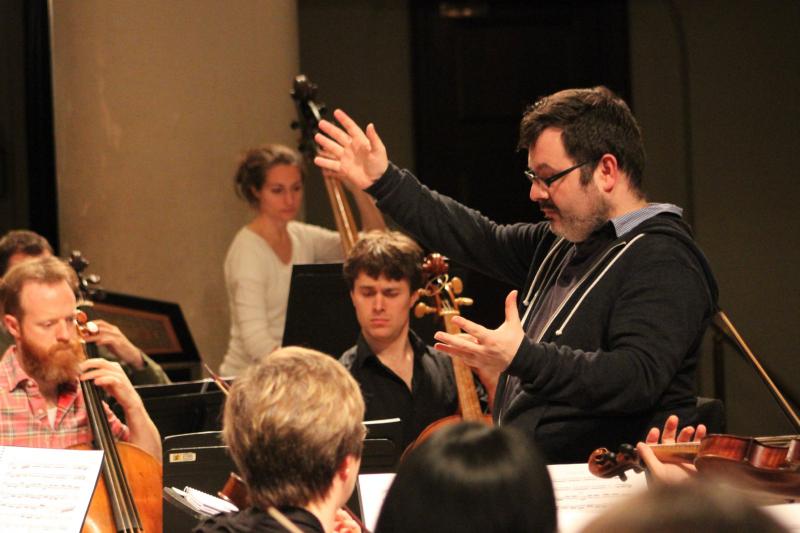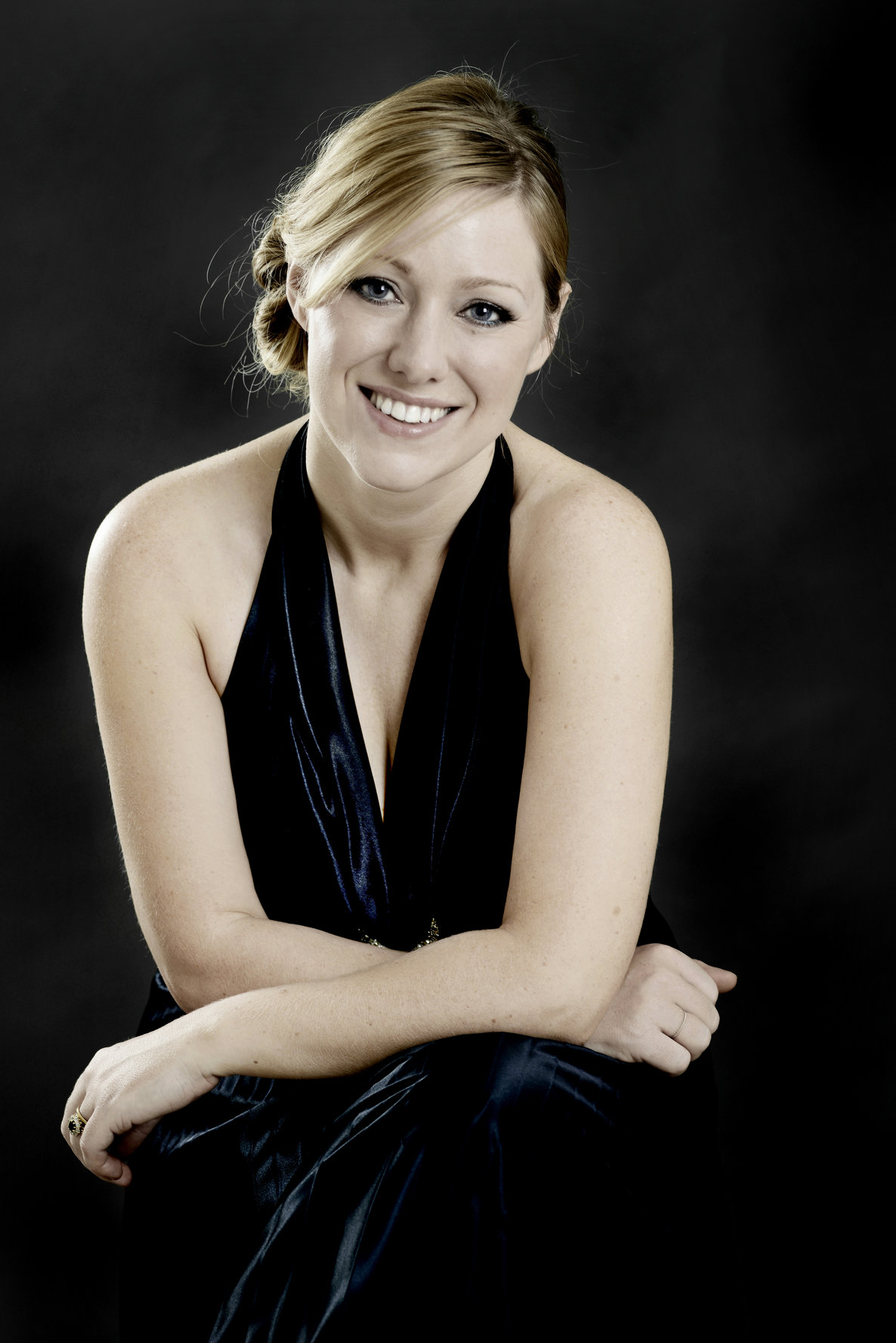Solomon, Royal Opera review - an awkward compromise of a performance | reviews, news & interviews
Solomon, Royal Opera review - an awkward compromise of a performance
Solomon, Royal Opera review - an awkward compromise of a performance
Handel's oratorio given a handsome but frustrating account

There was no synopsis in the programme for the Royal Opera’s concert performance of Handel’s Solomon. Maybe that was an oversight, but perhaps it’s simply because there really is no plot to summarise.
None of which really matters, because it’s one of the composer’s most toothsome scores. The splendour of King Solomon’s court offers every excuse for musical excess, and the magnificent, often eight-part, choruses come coated in brass just as the palace is in gold. The work’s episodic structure – Part I celebrating Solomon’s happy marriage, Part II a potted account of Solomon’s famous judgement, Part III a sequence of entertainments for the visiting Queen of Sheba – frees the composer from any real narrative constraints, and arias emerge on the flimsiest of excuses.
Even scaled up to the building the period band felt at an unnecessary disadvantage
Framed in the giant mirrored screens of the Gibichung palace from Keith Warner’s Ring (providing an interesting, if incidental, commentary on the fleeting illusion of human power), the Royal Opera Chorus delivered exactly the kind of plush, richly upholstered account of the score you’d expect. Long on tone colour and short on vertical clarity, the sheer weight of the ensemble was further exaggerated by the placement of Christian Curnyn and the Orchestra of the Early Opera Company in the pit. Even scaled up to the building (18 violins set the balance) the period band felt at an unnecessary disadvantage, and while in the Stalls we got the benefit of lots of instrumental detail (including an ecstatically lovely obbligato oboe) I do wonder how much made up it to the Balcony, let alone the Amphitheatre.
Sightlines must also have been an issue, with the small team of soloists placed wilfully at the extreme sides of the stage, tucked right into the corners, so as to be obscured from huge swathes of seats. Leaving aside the bigger question of whether the Royal Opera House is an viable venue for this repertoire, surely this basic housekeeping issue could have been foreseen and addressed?
 A strong cast on paper was more mixed in performance. Ed Lyon’s Zadok (a thankless role – part special-advisor, part spiritual cheerleader) was impeccable from start to finish, his coloratura machine-gun swift and much more accurate, phrasing wonderfully malleable and reactive. Sophie Bevan (pictured right, Solomon’s Queen and First Harlot) was all rapturous bloom and sensual legato – more than a match for Lawrence Zazzo’s intermittently impressive Solomon. At its best the countertenor’s tone is clean and resonant as ever, but a number of odd little ticks and quirks have crept into delivery that is right on the brink of being distractingly mannered. As it was, there was more of the fussy despot than the wise elder statesman about his king.
A strong cast on paper was more mixed in performance. Ed Lyon’s Zadok (a thankless role – part special-advisor, part spiritual cheerleader) was impeccable from start to finish, his coloratura machine-gun swift and much more accurate, phrasing wonderfully malleable and reactive. Sophie Bevan (pictured right, Solomon’s Queen and First Harlot) was all rapturous bloom and sensual legato – more than a match for Lawrence Zazzo’s intermittently impressive Solomon. At its best the countertenor’s tone is clean and resonant as ever, but a number of odd little ticks and quirks have crept into delivery that is right on the brink of being distractingly mannered. As it was, there was more of the fussy despot than the wise elder statesman about his king.
Susan Bickley felt miscast as Second Harlot/Queen of Sheba, her dramatic skill wasted and her brittle tone struggling to swell and bend to accommodate the curves of Handel’s melodies in this space, but Richard Burkhard’s Levite was full of character, just occasionally in tension with Curnyn’s tempi.
Stylish to a fault, perhaps a little too precise, too carefully phrased, too emphatically articulated, this wasn’t a vintage night for Curnyn and his fine baroque band. Relocate the action to Kings Place or the Queen Elizabeth Hall and this could have been a different concert with fewer compromises and more opportunity for period specialists to do what they do best.
The future of Arts Journalism
You can stop theartsdesk.com closing!
We urgently need financing to survive. Our fundraising drive has thus far raised £49,000 but we need to reach £100,000 or we will be forced to close. Please contribute here: https://gofund.me/c3f6033d
And if you can forward this information to anyone who might assist, we’d be grateful.

Subscribe to theartsdesk.com
Thank you for continuing to read our work on theartsdesk.com. For unlimited access to every article in its entirety, including our archive of more than 15,000 pieces, we're asking for £5 per month or £40 per year. We feel it's a very good deal, and hope you do too.
To take a subscription now simply click here.
And if you're looking for that extra gift for a friend or family member, why not treat them to a theartsdesk.com gift subscription?
more Opera
 Tosca, Royal Opera review - Ailyn Pérez steps in as the most vivid of divas
Jakub Hrůša’s multicoloured Puccini last night found a soprano to match
Tosca, Royal Opera review - Ailyn Pérez steps in as the most vivid of divas
Jakub Hrůša’s multicoloured Puccini last night found a soprano to match
 Tosca, Welsh National Opera review - a great company reduced to brilliance
The old warhorse made special by the basics
Tosca, Welsh National Opera review - a great company reduced to brilliance
The old warhorse made special by the basics
 BBC Proms: The Marriage of Figaro, Glyndebourne Festival review - merriment and menace
Strong Proms transfer for a robust and affecting show
BBC Proms: The Marriage of Figaro, Glyndebourne Festival review - merriment and menace
Strong Proms transfer for a robust and affecting show
 BBC Proms: Suor Angelica, LSO, Pappano review - earthly passion, heavenly grief
A Sister to remember blesses Puccini's convent tragedy
BBC Proms: Suor Angelica, LSO, Pappano review - earthly passion, heavenly grief
A Sister to remember blesses Puccini's convent tragedy
 Orpheus and Eurydice, Opera Queensland/SCO, Edinburgh International Festival 2025 review - dazzling, but distracting
Eye-popping acrobatics don’t always assist in Gluck’s quest for operatic truth
Orpheus and Eurydice, Opera Queensland/SCO, Edinburgh International Festival 2025 review - dazzling, but distracting
Eye-popping acrobatics don’t always assist in Gluck’s quest for operatic truth
 MARS, Irish National Opera review - silly space oddity with fun stretches
Cast, orchestra and production give Jennifer Walshe’s bold collage their all
MARS, Irish National Opera review - silly space oddity with fun stretches
Cast, orchestra and production give Jennifer Walshe’s bold collage their all
 Káťa Kabanová, Glyndebourne review - emotional concentration in a salle modulable
Janáček superbly done through or in spite of the symbolism
Káťa Kabanová, Glyndebourne review - emotional concentration in a salle modulable
Janáček superbly done through or in spite of the symbolism
 Buxton International Festival 2025 review - a lavish offering of smaller-scale work
Allison Cook stands out in a fascinating integrated double bill of Bernstein and Poulenc
Buxton International Festival 2025 review - a lavish offering of smaller-scale work
Allison Cook stands out in a fascinating integrated double bill of Bernstein and Poulenc
 Tosca, Clonter Opera review - beauty and integrity in miniature
Happy surprises and a convincing interpretation of Puccini for today
Tosca, Clonter Opera review - beauty and integrity in miniature
Happy surprises and a convincing interpretation of Puccini for today
 Hamlet, Buxton International Festival review - how to re-imagine re-imagined Shakespeare
Music comes first in very 19th century, very Romantic, very French operatic creation
Hamlet, Buxton International Festival review - how to re-imagine re-imagined Shakespeare
Music comes first in very 19th century, very Romantic, very French operatic creation
 Falstaff, Glyndebourne review - knockabout and nostalgia in postwar Windsor
A fat knight to remember, and snappy stagecraft, overcome some tedious waits
Falstaff, Glyndebourne review - knockabout and nostalgia in postwar Windsor
A fat knight to remember, and snappy stagecraft, overcome some tedious waits
 Salome, LSO, Pappano, Barbican review - a partnership in a million
Asmik Grigorian is vocal perfection in league with a great conductor and orchestra
Salome, LSO, Pappano, Barbican review - a partnership in a million
Asmik Grigorian is vocal perfection in league with a great conductor and orchestra
